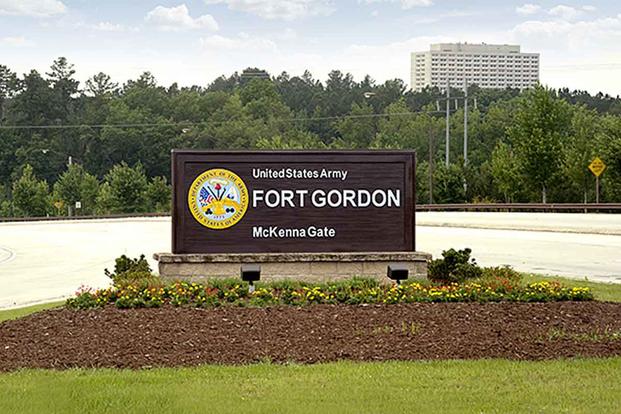The House Appropriations Committee passed a version of the fiscal 2021 defense funding bill Tuesday that would support a 3% pay raise for active-duty service members, block the transfer of Defense Department money to construct a border wall, reduce funds for overseas contingency operations, and encourage the U.S. Army to change the names of posts honoring Confederate leaders.
The $694.6 billion bill would fully fund a 3% pay raise proposed by the Trump administration and supported by the House and Senate Armed Services Committees. The raise would be the second increase of the same size in two years.
Read Next: Former VA Employee Pleads Guilty to Murders of Seven Veterans
The bill also includes funding for other quality-of-life measures, including $116 million to upgrade Defense Department child care facilities, and language designed to discourage the military branches from cutting the number of military medical billets and reducing services at military hospitals and clinics without input from Congress.
It also would set aside $1.49 billion for environmental cleanup of installations, particularly for per- and polyfluroalkyl substances.
The bill also provides $327 million to stem the tide of sexual assaults in the military, $49 million more than requested by the Pentagon.
"This bill continues the committee's focus on the well-being and morale of those in uniform, their families, DoD civilians, and defense communities," Rep. Pete Visclosky, D-Indiana, said in opening remarks during a markup by the committee.
The proposed legislation sets aside $1 million for the Army to rename 10 bases that honor Confederate generals -- a provision that supports the current versions of the House and Senate defense policy bills, which also call for renaming the installations.
The House version of the fiscal 2021 National Defense Authorization bill would require the DoD to remove the names within a year, while the Senate's version sets the timeline for three years.
The provision, along with measures designed to stop the White House from using DoD funds to continue building a wall on the southern border with Mexico, will need to be negotiated with the Senate before heading to the desk of President Donald Trump, who has said he would veto any efforts to change the base names and is likely to balk at measures restricting border wall construction.
The bill would fund an active-duty end strength of 1,351,500, an increase of 12,000 service members that had been requested by the Pentagon. With that increase, the Army would gain 5,900 soldiers; the Navy, 7,300 sailors; and the Air Force, 900 airmen.
The Marine Corps would see a drop of 2,100, leaving the service with 184,100 active-duty members -- a move requested by the Department of Defense earlier this year.
The Army and Air Force would both see small increases to their reserve and National Guard numbers while the Navy and Marine Corps would see a slight decrease or remain the same size, respectively.
The proposal includes $68.4 billion for overseas contingency operations, a decrease of $2.2 billion from last year and $200 million below the president's request.
In a report on the proposal, lawmakers said that, with significantly fewer deployed service members, they believe activities funded by the account, known as OCO, "could very well be supported within base accounts in the future."
"The OCO experiment has been an abject failure and has given the Department a budgetary relief valve that has allowed it to avoid making difficult decisions," they wrote.
The proposal also includes amendments to repeal Authorizations for the Use of Military Force passed in 2001 and 2002 -- laws that give the president the power to authorize combat operations in the Middle East and Africa.
The amendments' sponsor, Rep. Barbara Lee, D-California, said the proposals are designed to ensure that Congress regains its powers to declare war.
Rep. Ken Calvert, R-California, praised much of the bill, saying it significantly invests in "shipbuilding, aircraft, as well as the research and development needed to ensure America wins the race on hypersonics, AI, quantum computing, and other technological fronts critical for our national security" while also giving troops a raise.
But, Calvert added, it contains a number of "partisan poison pill policy riders" that he said don't belong in a spending bill.
"Limitations on troop deployments to respond to national emergencies at the southern border and restrictions on property transfers with state and local law enforcement only serve political interests and make it more difficult to pass this important bill through Congress," he said.
The committee approved the proposed legislation in a 30-22 vote. It will now go to the House for approval before it must be reconciled with the Senate's version and signed by the president.
-- Patricia Kime can be reached at Patricia.Kime@Monster.com. Follow her on Twitter @patriciakime.
Related: Military Pay Raise for 2021 Moves Forward in the Senate













